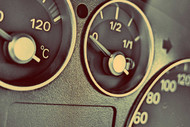Is Excessive Idling Bad for Your Vehicle?
3rd Feb 2023
It's normal for vehicles to idle. Whether you're warming up the engine on an otherwise cold winter morning or waiting for a green light at an intersection, your vehicle will idle. Excessive idling, however, can have some negative effects.
Fuel Consumption
Your vehicle will consume fuel while idling. Idling is defined as a state in which a vehicle's engine is running while the vehicle remains stationary. Engines consume fuel while running. Assuming you have a traditional vehicle with an internal combustion engine (ICE), it will burn fuel and air. It will only stop burning this mixture of fuel and air when you turn off the ignition. Therefore, excessive idling will cost you money at the pump.
Fuel Residue
Speaking of fuel, excessive idling can result in fuel residue being left behind on the walls of your vehicle's engine. Your vehicle's engine might be at operating temperature if it's idling. Many drivers idle their vehicles in the morning specifically to warm them up. But it can take up to 10 minutes -- sometimes even longer -- for it to reach operating temperature.
Idling your vehicle before it has reached its ideal operating temperature can lead to incomplete combustion Your vehicle's engine won't be able to completely burn all of the fuel. Some of the unburned fuel will then stick to the cylinder walls.
Battery Charge
Excessive idling can take a toll on your vehicle's battery. Automotive batteries, as you may know, charge automatically with the help of an alternator. As you drive your vehicle, the engine will turn the alternator, which in turn charges the battery.
The alternator will still charge your vehicle's battery if you are idling, but it will charge at a significantly slower rate. The alternator's performance is dependent upon revolutions per minute (RPM). The higher your vehicle's RPM, the better the alternator will perform. Idling will result in low RPM and, thus, poor alternator performance.
Radiator Fan
Your vehicle will rely on the radiator fan when idling. Radiator fans are cooling fans found on the radiator. They are designed to blow air over the radiator so that heat will dissipate from the coolant inside of the radiator.
When you are idling, your vehicle will have to power the radiator fan. Electricity must travel to the radiator fan so that it will spin. In comparison, the radiator fan will spin on its own when your vehicle is moving.



